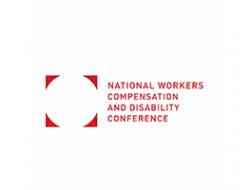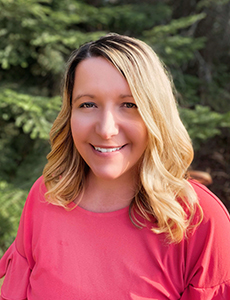‘Worker Advocacy’ Is Not Just Another Pretty Phrase: Here’s How to Live It

Over the last several years there has been a heightened focus on injured worker advocacy and how those within the workers’ compensation industry think about and handle the overall experience for the injured worker.
As Julie Horton, assistant claims product manager, workers’ compensation, Helmsman Management Services explains, a few years ago there was a lot of discussion around the word “claimant” within workers’ compensation claims.
“There’s definitely a negative connotation to the word ‘claimant’ and so we did a lot of work around not using that term anymore,” Horton said. “Rather, we initiated using the term ‘injured worker’ instead.”
It is a small but big change around one simple word.
That, coupled with the feedback Helmsman Management Services receives from customers about the experience of their injured workers, means that they are transforming not only that one word, but taking it to the next level. Called the “One Voice Initiative,” the Helmsman team is creating an entire dictionary of the words used throughout workers’ compensation and transforming each of them.
In the upcoming National Comp Session on May 5, Horton, along with her colleague Sarah Sullivan, senior claims strategic initiatives manager, workers’ compensation, Helmsman Management Services, will be presenting “One Voice: Building a Culture of Injured Worker Advocacy.”
“It’s pretty easy to navigate with your medical provider what the steps are and what you need to do in the workers’ comp process but there’s this whole additional layer in workers’ comp around the regulatory and state-specific processes that make it even harder to navigate,” Horton said.
“That’s why the One Voice Initiative is really about emphasizing this plain and simple language to just make things easier for people as they navigate their injury.”
The core of the One Voice Initiative is truly about treating people with respect during a difficult time in their life.
“It’s about working with people on their recovery process and helping them through it, while being empathetic with what they are going through. We are trying to keep the process as simple as possible for them so that we can help them get back to work, which is ultimately where they want to be,” Sullivan said.
“We are focusing on the overall experience for the injured worker and advocating for them.”
While “claimant” is one key word within the workers’ comp “dictionary” that the One Voice Initiative is striving to change, there are many others that have negative connotations.
For example, during the workers’ comp process, a worker may hear that their claim is being “investigated.” While industry professionals don’t mean any offense when using this long-established “jargon,” it is time to reevaluate the meaning and tone behind these phrases.
“This is a foundation piece of a claim coming in the door and while this is not to say that it isn’t something that we should do, it is really more about the way we treat people and how we talk to them during the process. This definitely the emphasis of the One Voice Initiative,” Sullivan said.
The Initial Process
At the beginning of the One Voice Initiative, the team looked at the terms and phrases that were potentially “pain points” when talking with an injured worker.
“We put together a group of subject matter experts from workers’ comp and we got together and started brainstorming the terms that we want to change,” Horton said. The team developed a list of 70+ words and phrases used within the workers’ comp arena. From there, the team spent 12 weeks developing alternative terms to use instead.
“We evaluate what these terms elicit when used with an injured worker,” Horton said. Once the revised dictionary was developed, it was taken to two focus groups for feedback, including a group of frontline adjusters in workers’ comp as well as a group of customers. “We were able to talk to these customers about the importance of tone as well as the changing of phrases and terms. This meant that, when we rolled out the program, we emphasized the revised terminology but also the importance of tone,” Sullivan said.
A Seamless Introduction
People within workers’ comp have fully embraced the initiative. “It wasn’t a hard sell at all. It has been pretty smooth sailing as people have really taken to it,” Horton said. “It aligns with our values of treating people with dignity and respect.”
The only challenge the team faced was taking a step back to identify the pain points throughout the workers’ comp process for the injured worker and looking at it from their perspective. To a certain degree, when identifying and evaluating the terms and phrases that should be altered, there was a paradigm shift that needed to take place among workers’ comp professionals who have been using these terms for years.
To help streamline the program’s rollout, the team took a three-prong approach focusing on the language used in verbal communication, written communication as well as in the digital space.

Sarah Sullivan, senior claims strategic initiatives manager, workers’ compensation, Helmsman Management Services
“It’s more than simply changing words. Rather it is about how we actually integrate the alternative terms into the work that our organization does on a daily basis,” Sullivan said.
The verbal phase of the program involved creating the dictionary, which is the cornerstone of the project. From there the team worked to rollout that language within the organization.
To accomplish this, over a 16-week rollout period, the team put together videos depicting “before and after” conversations with an injured worker and claims specialist to show how different the conversation looks using the “old” terms versus the “new” terms. A series of podcasts also were produced discussing the importance of language, as well as interactive activities for teams to do in their weekly huddles that focused on the new terms.
“This gave them a chance to practice them and learn them,” Sullivan said. “We wanted it to be fun and engaging for the organization.”
During the written phase, which is the current stage the project is in, they are modifying the written communication materials, including letters that are commonly used in the workers’ comp space, and they’ve partnered with a linguistics vendor to update and edit these materials.
The last phase is the digital phase where the team will ensure they have the same language across all digital communications.
“During our 16-week rollout we had four blog posts that highlighted complements from injured workers and customers around this program,” Sullivan said. “We wanted to highlight how well this is working.” People said they were appreciative of when a claims specialist took the time to explain things, make the process simpler for them, and how that led them to feeling less anxious about the whole process.
“As we think about the health and support we can give to injured workers, there are tangible impacts it can have on their recovery, on their disability and on their overall livelihood,” Horton said.
“It’s simply a sense of thoughtfulness that is happening from one human being to another.” &
 National Comp — the National Workers’ Compensation and Disability Conference — is back! We’re planning an in-person show for October, 20-22, 2021 and we’re excited to see everyone while still adhering to all safety protocols set forth by local and national health authorities at the time of the event. Register today!
National Comp — the National Workers’ Compensation and Disability Conference — is back! We’re planning an in-person show for October, 20-22, 2021 and we’re excited to see everyone while still adhering to all safety protocols set forth by local and national health authorities at the time of the event. Register today!
This year, we’ll feature seven tracks — from core content on medical and pharmaceutical management, claims and return-to-work, plus new and expanded avenues to explore like risk finance and injury prevention. All of our educational sessions are chosen for their ability to deliver sound takeaways and ideas that attendees can use right now.
In the meantime, National Comp will continue bringing you free virtual, educational content through our digital sessions series and our CompTalks program. Register today to make sure you don’t miss a digital session and check out our on-demand CompTalks library. Missed a session? Watch it here on-demand.











